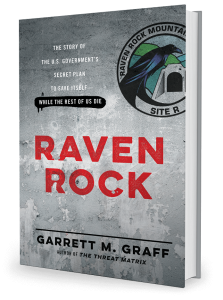Here’s my annual list of the best books I read last year, although this year’s isn’t really ranked in any particular order. There’s a strange theme this year of books with a strong sense of geographic place, opening windows into different cultures, from the American West to Eastern Europe to Siberia to colonial South America.
1) A Deniable Death by Gerald Seymour :: I’d never read anything by this British thriller writer until this book, about a mission into Iran, but he had a uniquely haunting and spare writing style that left me wanting to read more.
2) Sergio: One Man’s Fight to Save the World by Samantha Power :: Upon her appointment as UN ambassador, I decided to read Power’s biography of the UN envoy who was killed in the Baghdad bombing of the UN mission in 2003. I remember distinctly watching the news unfold that day at the Dean campaign. Her book was just fascinating—a great biography, but also a vigorous argument for the UN as an institution, something that I’ve never had particularly high respect for. She really changed the way I look at the UN.
3) Crime and Guilt: Stories by Ferdinand von Schirach & The Winter Queen: A Novel (An Erast Fandorin Mystery) by Boris Akunin :: Both of these books, the first a collection of short stories by a German defense lawyer and the second the initial volume in a Russian mystery series, were recommended by a particularly literate friend in France. I’d never have stumbled across either of them and am very glad I did. I’m looking forward to reading the rest of the Fandorin series in the months ahead. They’re both quite short, good vacation weekend reads or to tuck away for a plane trip.
4) Wool by Hugh Howey :: Howey’s self-published sci-fi book has been a huge publishing sensation and well worth the read.
5) Danger and Survival: Choices About the Bomb in the First Fifty Years by McGeorge Bundy :: This history of atomic weapons and nuclear strategy is perhaps the most surprising addition to this year’s list, because it’s long and weighty, but Bundy’s writing is surprisingly vigorous and full of fascinating history.
6) The Son by Philipp Meyer :: I read Meyer’s new epic saga of the settling of the West, as told through generations of a Texas family, in about the least similar setting possible—while traveling through the Scottish islands in July—and yet even then the book oozes so much scenery, dry heat, and desert sun that I felt hot while reading it.
7) Means of Ascent: The Years of Lyndon Johnson by Robert A. Caro & Bolivar: American Liberator by Marie Arana :: These were the two most ambitious biographies I tackled this year and both were interesting in different ways. I’ve been reading Caro over the last couple of years (and might finally catch up on the last published volume this next year sometime), but Caro’s just unparalleled as a biographer. Arana’s story of South America’s founding father taught me mainly that there’s an incredible amount of South American history that I just don’t know at all.
8) Savage Continent: Europe in the Aftermath of World War II by Keith Lowe (and maybe then Iron Curtain: The Crushing of Eastern Europe, 1944-1956 by Anne Applebaum :: I didn’t mean to have a subsection of the list dedicated to horrific tales of the post-World War II years in Europe, but here it is. These two books really capture the sadness and desperation of Europe after the end of the War and transformed the way that I look at that period.
9) Mr. Penumbra’s 24-Hour Bookstore: A Novel by Robin Sloan :: This was a very light, very fun, breezy novel, most similar to a “Phantom Tollbooth” for adults. I rarely read in a book in a single sitting, but I read this over Christmas break, starting mid-afternoon and stayed up to finish it before I went to bed. Just a tremendously fun book.
10) The Tiger: A True Story of Vengeance and Survival by John Vaillant :: I saw Vaillant speak at a writing conference this summer—I’d never heard of him before—and just loved his stories, so I picked up this amazing book about a Siberian tiger and a poacher. It was one of the most captivating and interesting books I’ve read in a long time, a topic that I knew very little about, but told in such a way to capture a strong sense of place and the lifestyle of a people and a culture that I can’t even really imagine. In the wake of reading this book, I probably brought up tigers in every conversation for a week. What amazing and smart creatures.
11) My Age of Anxiety: Fear, Hope, Dread, and the Search for Peace of Mind by Scott Stossel :: Scott’s a friend, but truthfully I didn’t really intend to read his book; I brought the galleys home over Christmas to flip through, and then somehow ended up spending most of Christmas Day reading it page by page. Scott’s a great writer, the book a perfect mix of memoir and science, and his own tale of living with anxiety is just eye-popping, especially knowing what a brilliant, thoughtful, and personable individual he is.
[Check here for my past lists: 2012, 2011, 2010, 2009, 2008, 2007, 2006, 2005, and 2004.]


Recent Comments